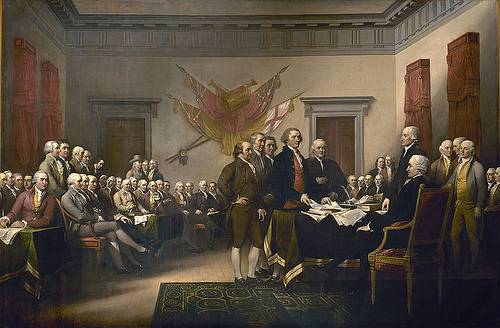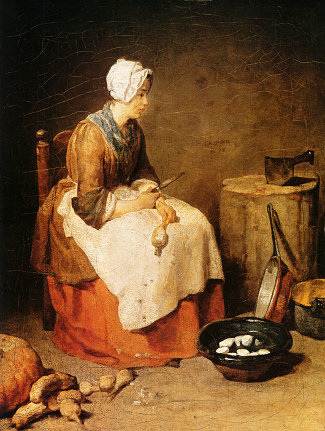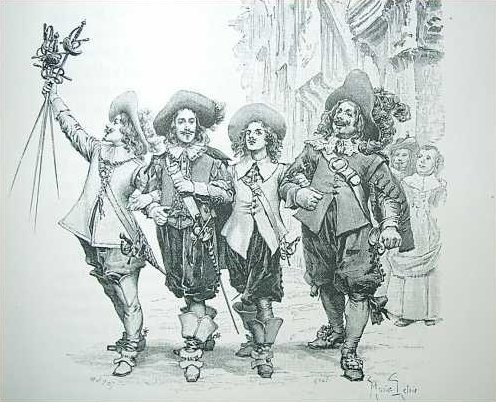In a certain library, no two books contain the same number of words, and the total number of books is greater than number of words in the largest book.
How many words does one of the books contain, and what is it about?
In a certain library, no two books contain the same number of words, and the total number of books is greater than number of words in the largest book.
How many words does one of the books contain, and what is it about?
In 1970, each political candidate in Oregon could specify a 12-word slogan to be printed under his name on the ballot.
Frank Hatch of Eugene, who was running as a Democrat for Congress, chose this:
“Anyone who thinks in 12-word slogans should not be on this ballot.”
Sometime about the 22d of September 1810, Mr. Elisha Wall and his family, consisting of his wife and three grown children, besides several small ones, at his plantation, on Cypress Creek, about 12 miles from Coosawatchie-bridge, in South Carolina, saw passing over his yard, considerably below the height of the trees, on Sunday, directly after dinner, a prodigious quantity of narrow-headed cat-fish, of two sizes, the lesser quantity about two feet long, and the greater about one foot. The largest fish were as walls of defence, on either side of the small ones, about three yards in breadth, and three tiers deep — they were well arranged, in a small distance from each other, so as each to have room to use their fins and tails, without interfering with each other — they were nearly one hour moving slowly from east to west — they had all the motions of real living fish in their natural element, though there was neither cloud nor wind to support their movements. It is said that several thousands must have passed during the time they were viewed. Mr. Wall is an honest man, of truth, sobriety, and industry, whose word in any case, will not be disputed by those who know him — there were also at his house, at the time, five indifferent persons, who also saw this great phenomenon, and are willing, if necessary, to make oath to the fact herein stated.
— “American Papers,” quoted in Kirby’s Wonderful and Eccentric Museum, 1820

Thomas Jefferson writhed under the criticisms of the Continental Congress as it reviewed his draft of the Declaration of Independence. Seeing this, Benjamin Franklin took him aside. “I have made it a rule,” he said, “whenever in my power, to avoid becoming the draftsman of papers to be reviewed by a public body. I took my lesson from an incident which I will relate to you.
“When I was a journeyman printer, one of my companions, an apprenticed hatter, having served out his time, was about to open shop for himself. His first concern was to have a handsome signboard, with a proper inscription. He composed it in these words: John Thompson, Hatter, makes and sells hats for ready money, with a figure of a hat subjoined. But he thought he would submit it to his friends for their amendments.
“The first he showed it to thought the word hatter tautologous, because followed by the words makes hats, which showed he was a hatter. It was struck out. The next observed that the word makes might as well be omitted, because his customers would not care who made the hats; if good and to their mind they would buy, by whomsoever made. He struck it out. A third said he thought the words for ready money were useless, as it was not the custom of the place to sell on credit. Every one who purchased expected to pay. They were parted with, and the inscription now stood, John Thompson sells hats. ‘Sells hats?’ says his next friend; ‘why, nobody will expect you to give them away. What, then, is the use of that word?’ It was stricken out, and hats followed, the rather as there was one painted on the board.
“So his inscription was ultimately reduced to John Thompson, with the figure of a hat subjoined.”
Last words of executed murderers:
In 1856, English murderer William Palmer stood on the gallows and asked, “Are you sure it’s safe?”

Ross Eckler coined the sentence Unsociable housemaid discourages facetious behaviour.
Each of the five words contains the five major vowels in a different order.
![]()
Mary had a little lamb, its fleece was white as snow,
And everywhere that Mary went the lamb was sure to go.
It followed her to school one day, which was against the rule;
It made the children laugh and play to see a lamb at school.
That rhyme has grown a bit boring — so Dave Morice has been spicing it up in Word Ways: The Journal of Recreational Linguistics. Samples:
Three-syllable words only, November 1998:
Marilyn’s ownership! Minuscule lambikin maximized fleeciness snowily.
Certainly everywhere Marilyn visited lambikin visited showily.
Yesterday lambikin, following Marilyn scholarly, misbehaved lawlessly.
Schoolfellows empathized laughingly, playfully, scholarly lambikin flawlessly.
Typed entirely with the left hand, August 1999:
Eva caged a wee, wee ewe, fat tresses wet as grass.
As Eva raced afar, ewe raced as far! Ewe was as crass.
Ewe started after Eva’s feet, faced ewe at fact cave.
Tads tagged, tads teased, tads raved at ewe, tads saw sweet treats ewe gave.
One long palindrome, November 1988:
Mary, baboon? To go to room? Gnu? Star? No, ’tis all lamb.
O, bit on stool, eh, Mary? Won sore heel? Sit! One rule, so:
No nose lure. No, ’tis Lee, hero, snowy ram. He loots not I, Bob.
Mall, la, sit on rat. Sung–“Moo rot! O, got no, O, baby ram!”
Rhopalic (words of increasing length), May 2000:
O, to own lamb, Mary’s little whitest creature,
Violating legalities, schoolmates interrupting
Schoolteacher entertainingly, disrespectfully,
Incontrovertibly counterproductive.
Semiprofessionally historicogeographic,
Superultrafrostified anticonstitutionalist,
Hyperconscientiousness anthropomorphologically,
Pathologicopsychological, philosophicopsychological.
And “The Lamb’s Viewpoint,” November 2006:
Lambie had a little girl, her hair was white as snow,
And everywhere that Lambie went, the girl was sure to go.
She followed him to graze one day; that was a real disaster.
It made the lambs all baa and bleat to see a girl in pasture.

ALL FOR ONE AND ONE FOR ALL is a word-level palindrome.
So is the witches’ chant FAIR IS FOUL, AND FOUL IS FAIR in Macbeth.

But how are we to figure the change from ‘undecided’ to ‘true’? Is it sudden or gradual? At what moment does the statement ‘it will rain tomorrow’ begin to be true? When the first drop falls to the ground? And supposing that it will not rain, when will the statement begin to be false? Just at the end of the day, 12 p.m. sharp? … We wouldn’t know how to answer these questions; this is due not to any particular ignorance or stupidity on our part but to the fact that something has gone wrong with the way the words ‘true’ and ‘false’ are applied here.
— F. Waismann, “How I See Philosophy,” in H.D. Lewis, ed., Contemporary British Philosophy, 1956